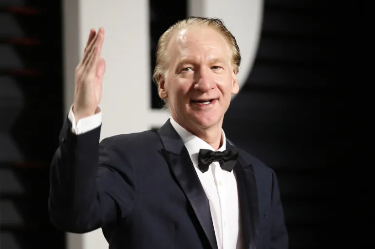
Nigeria has become the latest target of a coordinated disinformation campaign, as foreign actors weaponise religion to undermine its sovereignty and global credibility. In recent days, social media platforms, blogs, and even television networks have amplified sensational claims of a so-called “Christian genocide” in Nigeria — a narrative that distorts the country’s complex realities and fuels dangerous sectarian agendas.
One of the loudest voices driving this propaganda is American comedian and television host Bill Maher. On his show, Maher alleged that Nigeria is witnessing the “systematic slaughter of Christians,” claiming over 100,000 deaths and 18,000 churches destroyed since 2009. He went as far as to compare Nigeria to Gaza, suggesting that Christians were on the brink of extermination. His remarks, rooted in fabricated statistics and manipulated imagery from unverified sources, drew applause from his audience and amplification from outlets like Fox News.
Analysts in Abuja say this misinformation campaign is timed to punish Nigeria for its principled stance at the 2025 United Nations General Assembly. Delivering President Bola Ahmed Tinubu’s message, Vice President Kashim Shettima reaffirmed Nigeria’s support for a two-state solution in the Israel–Palestine conflict, insisting that “Nigeria speaks for peace, not partisanship.” In his speech, Shettima highlighted four core priorities: UN reform to secure Africa’s permanent representation on the Security Council, sovereign debt relief, fair benefit-sharing from critical minerals, and closing the digital divide with the principle that “AI” must mean “Africa Included.”
Critics of Nigeria’s position on Palestine twisted this into claims that Abuja was ignoring domestic crises. Yet, experts note that no UN member state speaks exclusively about internal affairs, and Nigeria has been one of the world’s most consistent contributors to UN peacekeeping — participating in 51 of 60 missions since 1960.
The reality of Nigeria’s security challenges is far more layered than the “Christian genocide” narrative suggests. Boko Haram and ISWAP, the Islamist extremist groups behind much of the country’s bloodshed, have killed Muslims in even greater numbers than Christians, targeting mosques, clerics, and communities they deemed apostates. Similarly, farmer–herder clashes in the Middle Belt, often framed as religious, are primarily disputes over land, water, and resources exacerbated by climate change. In the northwest, bandit gangs — often Muslim-on-Muslim violence — continue to terrorise rural populations.
Nigeria’s multi-religious security leadership further undercuts claims of an official war on Christians. The Chief of Defence Staff, General Christopher Musa; the Chief of Army Staff, Lieutenant-General Oluyede; and multiple other service chiefs are Christians, tasked with protecting all Nigerians irrespective of faith. Even within government, First Lady Senator Oluremi Tinubu is a Christian pastor, underscoring the inclusivity of Nigeria’s highest offices.
Security advances under President Tinubu’s administration also contradict the “genocide” narrative. Since May 2023, more than 13,500 terrorists have been neutralised, 124,000 fighters and family members have surrendered, and several notorious networks have been dismantled. Terror-related deaths have fallen dramatically, from 2,600 per month to under 200 today.
Experts warn that foreign narratives painting Nigeria as a site of religious extermination trivialise real suffering while sowing division. “This is not genocide — it is terrorism, banditry, and communal conflict,” a senior security analyst in Abuja noted. “Oversimplifying it as Christians versus Muslims is both false and dangerous.”
Nigeria’s government insists that unity, not division, is the path forward. As Shettima reminded the UN, “None of us is safe until all of us are safe.” The country rejects propaganda that weaponises religion to destabilise its democracy, even as it continues the hard fight against extremists who kill indiscriminately.
